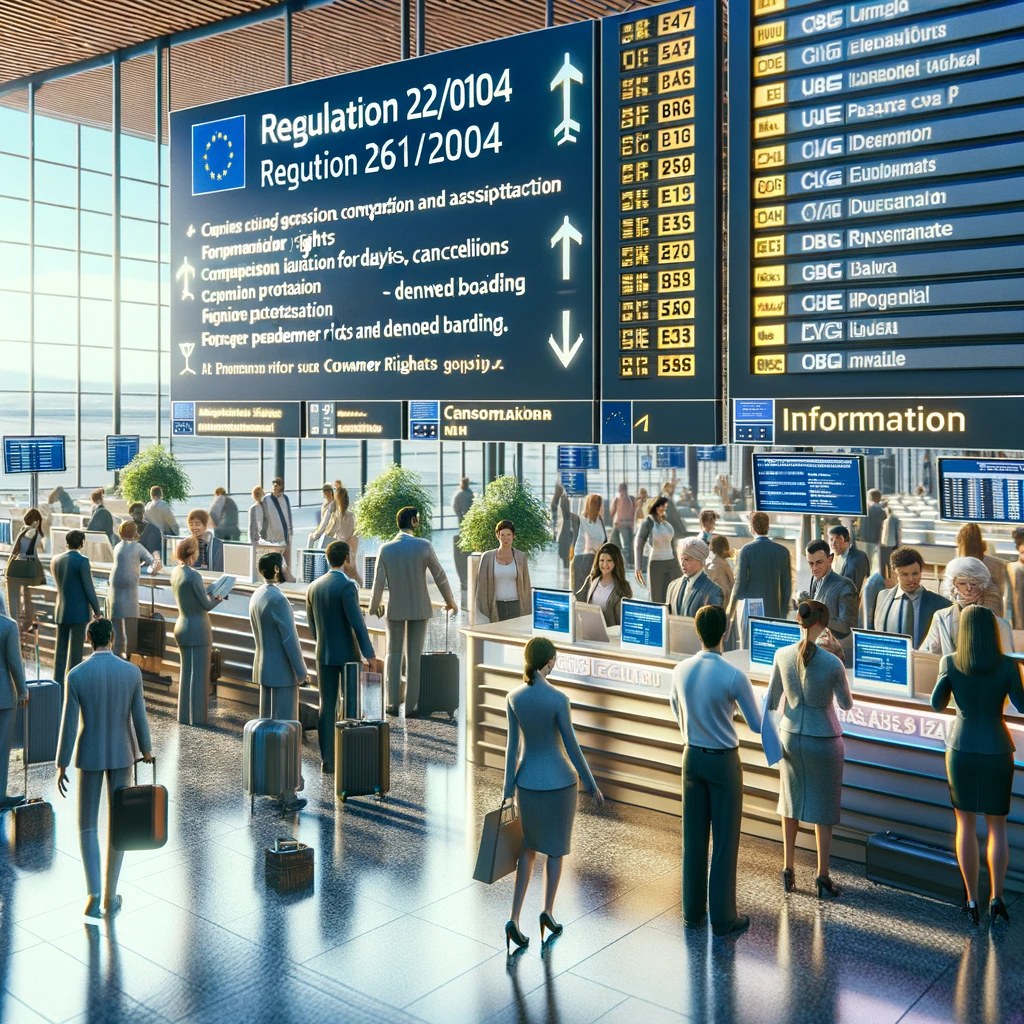EU Regulation 261/2004 is designed to protect air passengers traveling within, into, or out of the European Union. Understanding whether this regulation applies to your situation can significantly impact your rights and potential compensation when dealing with flight delays, cancelations, and denied boarding.
There are also now services like Flightright to help you navigate the situation more effectively.
Table of Contents
Understanding the EU Regulation 261/2004
EU Regulation 261/2004 establishes common rules on compensation and assistance to passengers in the event of denied boarding, flight cancelations, or long flight delays. It applies to:
- Passengers departing from an airport located in the EU, regardless of the airline.
- Passengers departing from an airport located outside the EU to an EU airport provided the airline is EU-based.
- Passengers with a confirmed booking on the flight that was affected.
- Passengers who checked in on time for their flight, at least 45 minutes before departure.
Scenarios Where the EU Regulation 261/2004 Applies
To determine if this regulation applies to you, consider the following scenarios:
1. Departure and Airline Base: If your flight departs from an EU airport, the regulation applies regardless of the airline’s country of origin. On the other hand, if your flight is headed to an EU airport but the airline is not EU-based, this regulation does not apply.
2. Flight cancelations and Delays: The regulation mandates compensation for flight cancelations or delays over three hours unless caused by extraordinary circumstances outside the airline’s control.
3. Denied Boarding: If you are denied boarding involuntarily on a flight that falls under these rules, you are typically entitled to compensation.
How to Claim Compensation
If you’re entitled to compensation due to a flight disruption, here’s a straightforward process to claim it:
1. Confirm Eligibility: Verify that your situation meets the criteria for compensation under the EU Regulation 261/2004.
2. Gather Documentation: Collect all relevant travel documents, including tickets, boarding passes, and receipts. If possible, obtain a written statement from the airline confirming the disruption.
3. File a Claim: Contact the airline directly. Many airlines provide online forms specifically for submitting compensation claims. Fill out the form comprehensively, attaching all necessary documents.
4. Keep Records: Save copies of all communications with the airline. This includes emails, receipts of form submissions, and any responses received.
5. Follow-Up: If the airline does not respond within a reasonable timeframe (usually about six weeks), follow up with a reminder.
6. Escalate if Necessary: Should the airline reject your claim or fail to respond, you can escalate the matter. In the EU, this can involve contacting a national enforcement body or seeking legal expertise.
Conclusion
EU Regulation 261/2004 is a powerful tool for air passengers faced with poor service related to delays, cancelations, and denied boarding. It’s important to understand whether or not this regulation applies to your specific travel situation. Take active steps to ensure that your rights are not only recognized but also exercised according to the full extent of the law.

Andrej Fedek is the creator and the one-person owner of two blogs: InterCool Studio and CareersMomentum. As an experienced marketer, he is driven by turning leads into customers with White Hat SEO techniques. Besides being a boss, he is a real team player with a great sense of equality.
